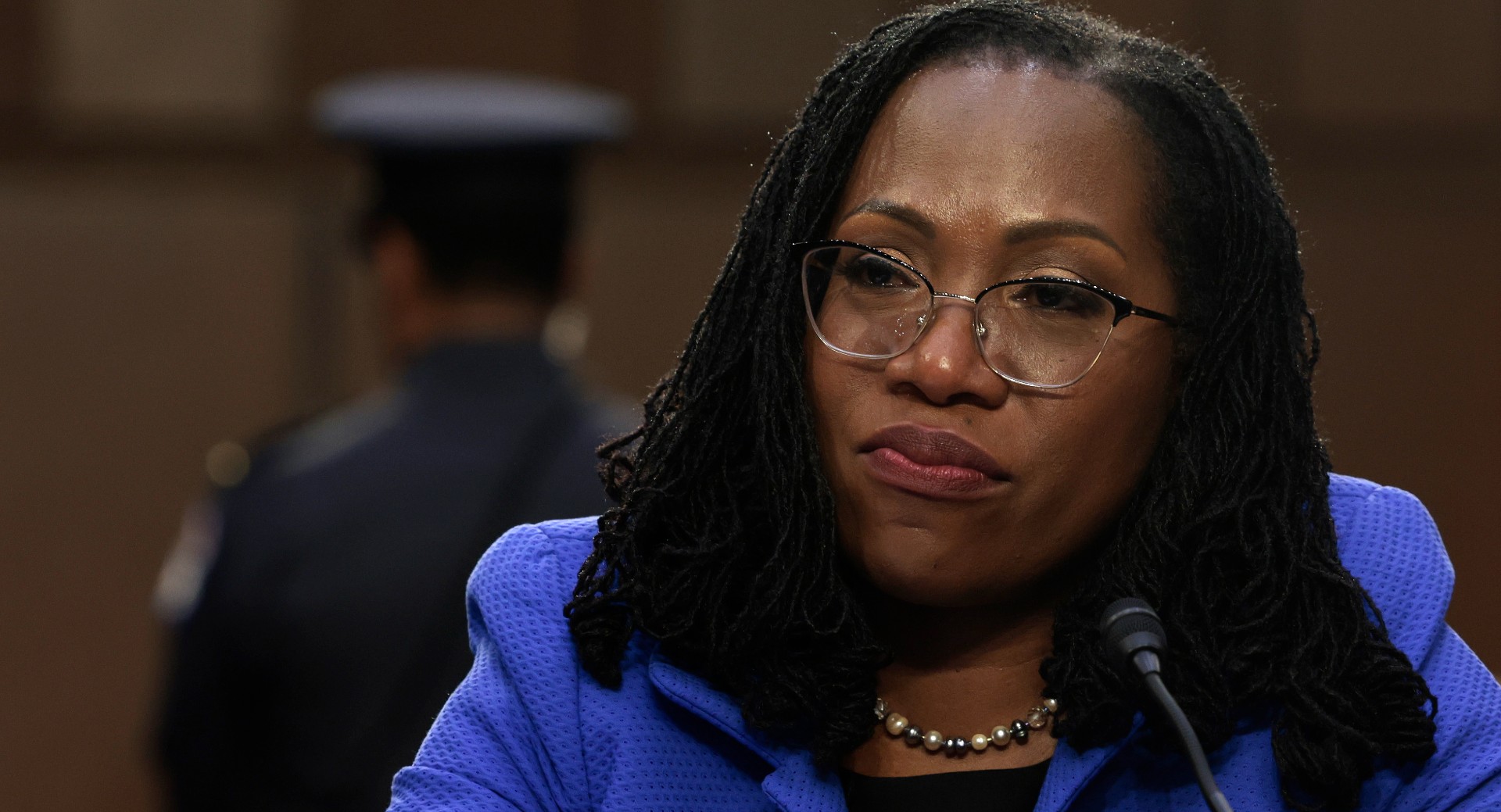OPINION: This article may contain commentary which reflects the author's opinion.
Judge Ketanji Brown Jackson said she will recuse herself from a lawsuit challenging Harvard University’s affirmative action policies if confirmed to the U.S. Supreme Court.
The nation’s highest court will hear multiple cases dealing with race-based college admissions practices in the fall at Harvard University and the University of North Carolina.
Both UNC and Harvard have been sued over allegations of discrimination against Asian and white Americans, with some arguing their civil rights were violated in the admissions process.
“That is my plan,” Jackson said about recusal when asked by Texas GOP Sen. Ted Cruz.
Jackson currently sits on the university’s Board of Overseers. Under the federal judiciary’s rules for recusal, judges must recuse themselves from “any proceeding in which his impartiality might reasonably be questioned,” including when the judge may have “a personal bias or prejudice concerning a party, or personal knowledge of disputed evidentiary facts concerning the proceeding.”
Cruz described the school’s affirmative action practices as an “explicit and, in my view, an egregious policy of discriminating against Asian-Americans,” before delving into a question about legal rules regarding standing.
“Even though I see that policy is egregious, I as an individual plaintiff could not bring a lawsuit challenging it because I am not Asian-American, is that right?” he asked Jackson, who did not directly answer the question.
“If you brought a lawsuit, the court would have to evaluate whether you had an actual injury in order to be able to determine whether it had subject matter jurisdiction to hear the suit,” she responded.
WATCH:
Judge Ketanji Brown Jackson says, if confirmed, she plans to recuse herself from Supreme Court case involving Harvard’s use of race as a factor in admission policies since she is on the university’s Board of Overseers. https://t.co/WTud7VJPVX pic.twitter.com/9gON966Jhc
— ABC News Politics (@ABCPolitics) March 24, 2022
Supreme Court Justice Clarence Thomas previously made it clear he’s ready to strike down affirmative action, calling the practice comparable to “bigotry.”
“I note that racial engineering does in fact have insidious consequences,” Thomas wrote, concerning a challenge to an affirmative action program at the University of Texas. “There can be no doubt that the University’s discrimination injures white and Asian applicants who are denied admission because of their race. But I believe the injury to those admitted under the University’s discriminatory admissions program is even more harmful,” Thomas previously argued.
“Blacks and Hispanics admitted to the University as a result of racial discrimination are, on average, far less prepared than their white and Asian classmates,” Thomas added.
“The University admits minorities who otherwise would have attended less selective colleges where they would have been more evenly matched,” he argued.
“But, as a result of the mismatching, many blacks and Hispanics who likely would have excelled at less elite schools are placed in a position where underperformance is all but inevitable because they are less academically prepared than the white and Asian students with whom they must compete. Setting aside the damage wreaked upon the self-confidence of these overmatched students, there is no evidence that they learn more at the university than they would have learned at other schools for which they were better prepared. Indeed, they may learn less,” Thomas added.
Eliminating the practice would send shockwaves across American higher education and leave many schools scrambling to find other ways to promote “diversity.”
Opponents say ending affirmative action would make the process fairer, and some say colleges could preserve racial diversity by giving an advantage to low-income students.
Mike Zhao, president of the Asian American Coalition for Education, said Americans should have equal opportunity to achieve success “through hard work, determination, and initiative.”
“It’s time for the U.S. Supreme Court to step up to protect our constitutional rights,” he said in a statement.
